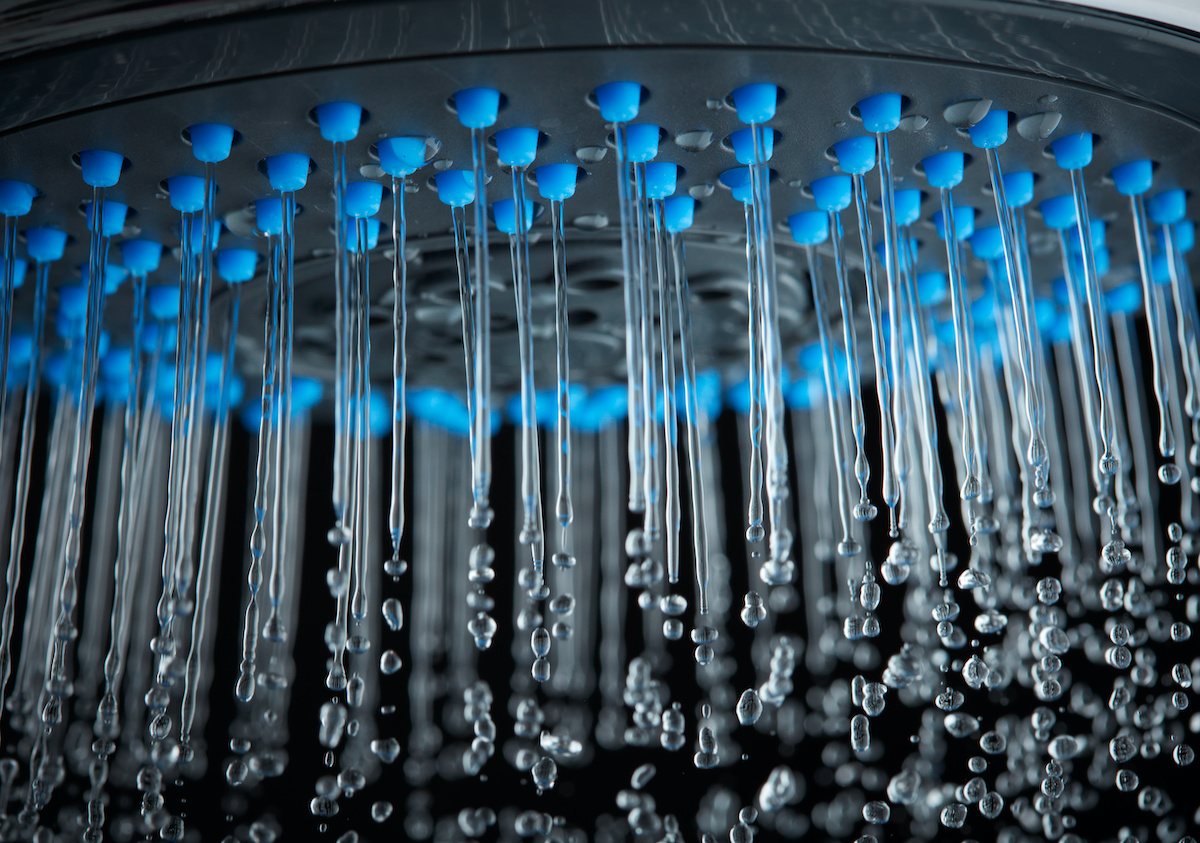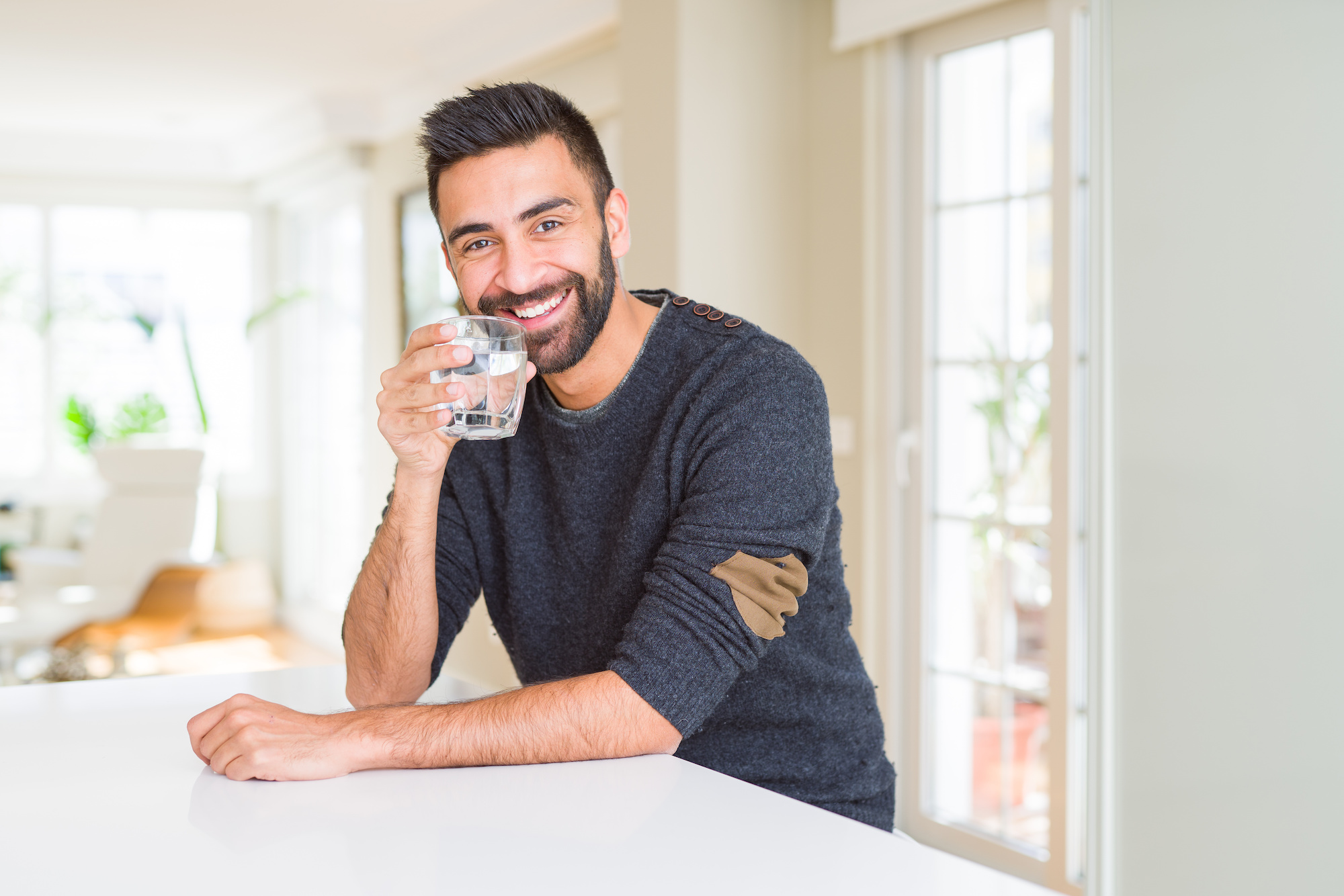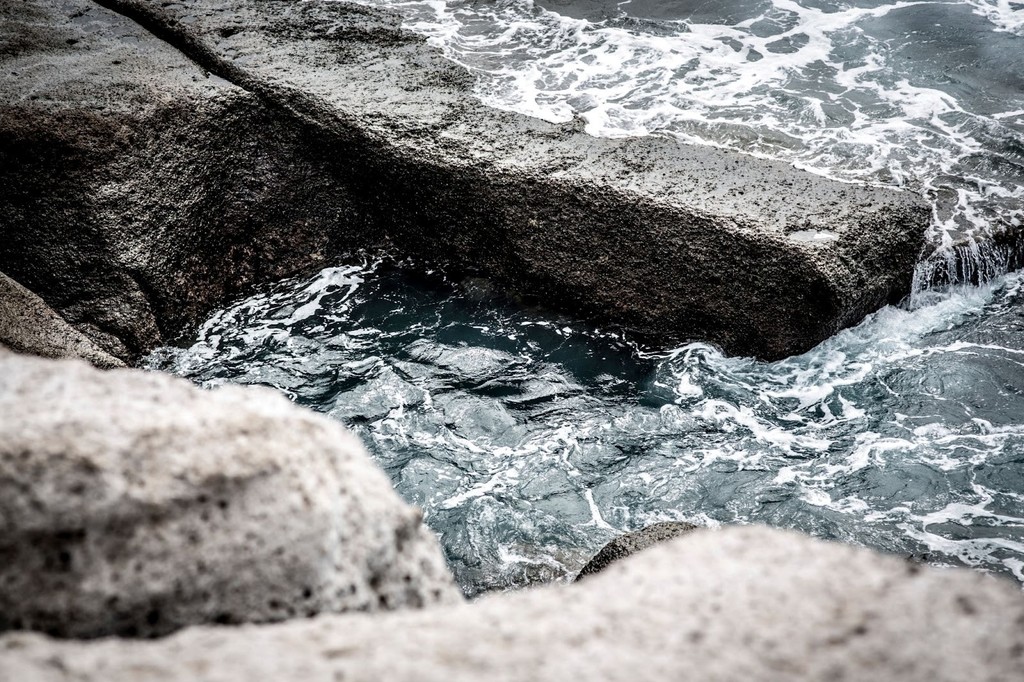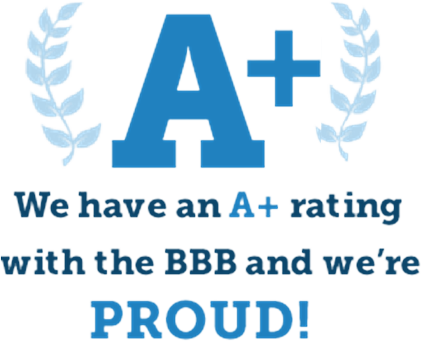We are taking ever necessary precaution with the CDC guidelines and wearing protective gloves, mask, booties, practicing safe distancing and using disinfectant cleaners to keep you and our team safe. If you have any questions or concerns please contact us at 702-737-1957.

The Most Dependable Water Softeners
Vortech Tank
Vortech resin tanks use the world's newest innovative and most efficient bottom distribution system available for resin tanks. Resin cleaning is greatly improved, and it works with all softening and filtration medias.
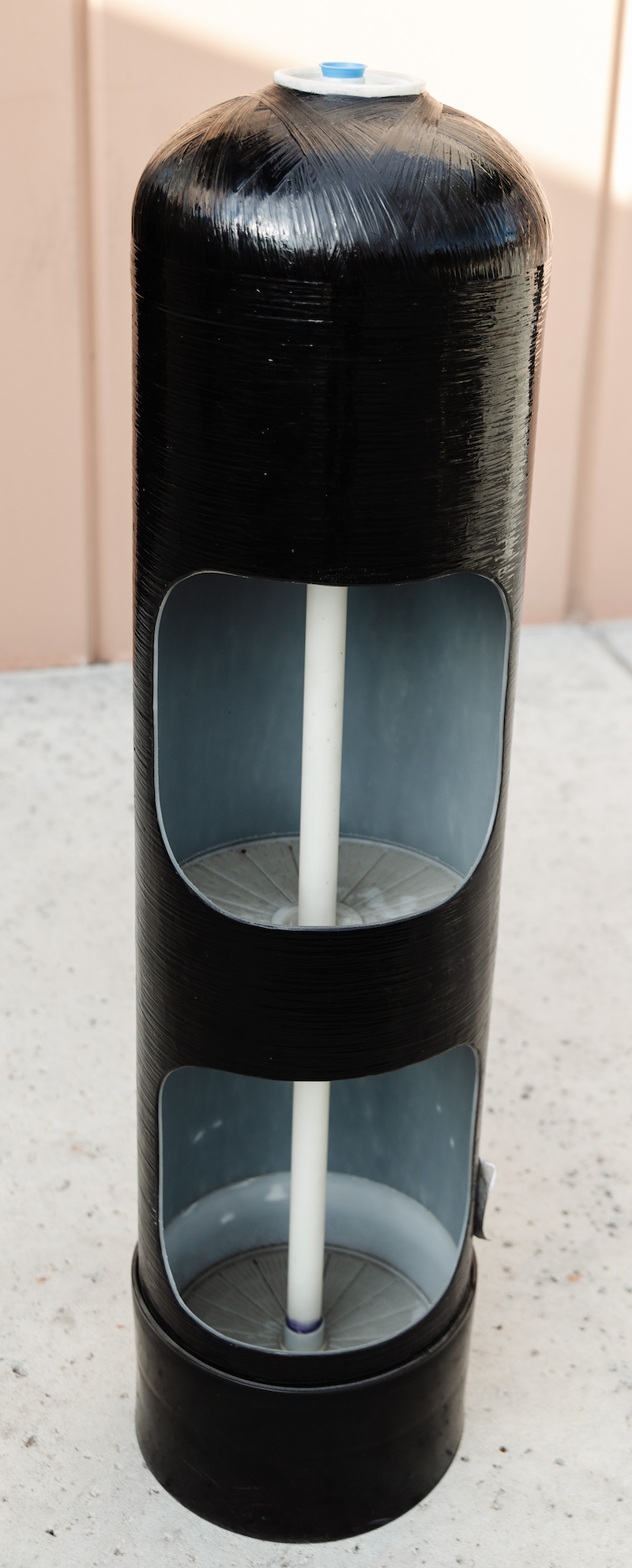

Why Choose ?
We have the knowledge and tools to complete any job in order to accurately diagnose your problem and offer you several solutions within your budget. If we cannot fix the problem, we do not charge you anything! Call today for free estimates on new equipment or to set a service call on your existing systems.
Clack Valve on Vortech Tank
The Clack valve was designed with ease of installation and service in mind. The valve boasts fewer parts than comparable systems, meaning easy service, and long-lasting reliability.
Manufactured from high-tech NORYL materials, the Clack valve has been engineered to withstand the test of the Las Vegas Hardness levels!
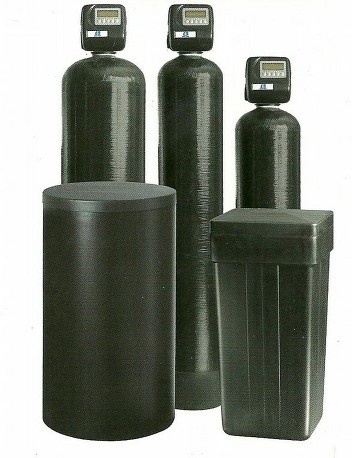
Had Enough of Las Vegas' Hard Water?
Call Serv-All Water Conditioning
We sell and install a variety of high-quality water softeners from some of the leading manufacturers in the industry.
We also provide prompt, professional service for all makes and models. Same-day appointments are available for some services, so call now for a free quote.
All of our new systems come with warranties, and we stand behind our residential service calls with 30-day warranties.
Ready to pull the trigger?
Get a quote today.
Testimonials
What our clients say about us and our work
Mike Remeika
We now understand why Serv-All is rated 5 stars. We had the pleasure of their technician Kris come to our home today to figure out why our water softener wasn't making soft water. We ended up replacing the water softener/ conditioner and getting a reverse osmosis system installed. Very happy with his attention to detail. We are very happy customers.
Timothy Evans
Highly recommend this company. Water softener and 5 stage ro are worth the price.
Ira Kleiman
Nick is thorough, patient and knowledgeable. Came for a follow up for a new water softener at no cost and answered all my questions.
FAQ
Quick Answers to Important Questions About Water
You use water every day for drinking, cooking, bathing, laundry, and more. It's important to know what you're putting into your body and using around your home. We've assembled a collection of the most important and most common questions we encounter as a water conditioning company in Las Vegas.
Do water softeners put salt in your water?
NO. Salt is sodium chloride, and water softeners add just a small amount of sodium to your water… but there is already sodium in the water before it even reaches the water softener.
This is a hugely misunderstood subject in the water business. People think water softeners also add chloride to the water, which is not true. All the chloride from the salt used in a water softener goes down the drain and none is added to the water supplied to your home. If water softeners added chloride to the water, the water would taste like ocean water, but it does not.
Reasonable levels of sodium are not bad for most people — in fact, Gatorade has a large amount of sodium in it. People on a restricted-sodium diet should not drink tap water either before or after a water softener because they will both contain sodium. When on a sodium restricted diet, only drink water processed through reverse osmosis or bottled water which has no sodium.
Is soft water bad for a swimming pool?
Yes and no. A plaster swimming pool needs a small amount of calcium in it so the water remains balanced. Because soft water has no calcium in it, the water is out of balance and could attack the plaster, trying to get back into balance.
It is almost impossible to fill a swimming pool with soft water because you would have to stop filling the pool every couple of hours while the water softener regenerates. Because calcium is a solid and not a liquid, it does not evaporate like the water does. Once the calcium is in the pool, it will always be there until you drain the pool.
For this reason, it is very beneficial to add soft water to a pool to replenish the water that is lost to evaporation. It will keep the calcium at a reasonable level and make your tiles easier to clean. If you continue to add hard water to the pool to replenish for evaporation, the calcium continues to build because it does not evaporate. Eventually, you will have to drain your water and refill the pool because it has too much calcium in it.
If I am using salt in my water softener, how much sodium is in the soft water?
The amount of sodium in soft water is directly proportional to the hardness of the untreated water, and for most water supplies it is not very high. For each grain per gallon of hardness, multiply by 7.9 to convert to milligrams of sodium per liter (a liter is slightly more than a quart). For instance, water with 15 grains/gallon hardness will contain118 milligrams of sodium per liter after softening. Thus, 2 liters of water per day provides less than 250 milligrams, which is small compared to the normal daily intake. If you have any health concerns about consuming or cooking with salt-softened water, please consult your physician.
What is the difference between the water softeners you sell over the ones offered by the competition?
We include the important options on our systems that add up in price, such as a commercial grade bypass on our Clack, Fleck and Autotrol Systems. Stainless steel bypass valve on our Clack WS1, Fleck 5600, 5600SE, 2510, 2510SE and 9000 Systems . We also include a brine well inside the brine / salt tank to keep the dirt and sediment from the salt plugging up the air check tube and the Softener valve, safety float to keep the water level from getting to high and overflowing all over the floor if there is a problem with the system and a grid plate/ salt platform to help keep the salt from hardening up and solidifying.
Do magnetic water softeners work?
What about flow rates — should I worry about water flow through these water softeners?
Always think about flow rates. Think about the number of shower heads and baths you have and the chances of using them all at the same time. For most folks, it is rare that all appliances and showers etc. will be used all at once so for the average home less than 2300 square feet a flow rate of 8 gallons per minute is more than enough. Every once in awhile we run across a customer that has multiple body shower sprays in a shower stall. The average jet package has 4 to 5 sprayers including the shower head. You need about 15 GPM to operate properly. In this case you want to size your softener based on an 18 gpm flow rate. In this application the Clack WS1 48,000 grain softener is the best choice.
Are your systems metered, on-demand, water flow only or do they regenerate by days only?
The preferred systems are all metered on demand, water flow systems they regenerate based on gallons used only so if you have more or less people in the home they will keep up with the usage if you go on vacation they will not regenerate do to no water is being used. We also carry Timered systems that regenerate base on days which are great for well water when trying to remove more than 3 ppm or mg/L of iron, this helps keep the resin bed clean from the iron. The only other benefit is cost.
Can I use potassium chloride instead of rock salt with your water softeners?
How long does it take before delivery after I have placed my order?
How do you handle warranty issues and what is the warranty on your water softeners and iron filters?
If you have a problem with your equipment you can do two things. Call us and will walk you through the troubleshooting which is easy to do. If that does not work we will send a technician out to try to fix the problem. If it is before one year of installation date, then there is no trip charge. But after one year there will be a charge. If it is a defective part that is under warranty we will change it out on site and take the broken part back to ship to the manufacture. The customer has to do nothing when it comes to the manufacture. We will handle it all! The control valves have a five year warranty and the tanks have a ten year warranty.
What is the difference between the Purolite c-100 e high capacity resin that you generally use and an ionics c-249 resin?
What is a main water supply?
Most homes have a similar water main somewhere on the outside of the house. You can see the water comes out of the ground, goes to to a shut off valve of some sort and a hose bib for connecting a hose. The water then enters the house and is distributed to all the plumbing fixtures. We need to tie into this main to install the water softener if your house was not pre-plumbed with a loop when it was built. You can also see the vacuum breaker that supplies all the underground sprinklers for irrigation.
If you can describe the location of the water main when you call we can ask you a few questions and give you a accurate quote for what we refer to as a full line installation.
How much water does it take to dissolve eight pounds of salt?
Do I have to have an exact amount of salt in the brine tank for the softener to regenerate properly?
The amount of salt placed into the brine storage tank has nothing to do with the amount of salt used during the regeneration cycle. Water will disolve and absorb salt only until it becomes saturated. A given amount of brine (salt saturated water) contains a specific amount of salt. Just make sure that there is at least enough salt for a regeneration cycle (8 lbs in the case of our unit).
Why do I need a water softener?
Installing a water conditioner/softener on your homes main water supply will increase the life and longevity of everything the treated water comes in contact with. Everything plumbing related in your home from your faucets to your major appliances (water heater, dishwasher, washing machine, etc) will benefit significantly from softened/conditioned water by eliminating unwanted scale build up that can eventually cause them to fail. This also means no more unwanted hard water spotting on your glassware, sinks/countertops, and shower/glass shower doors keeping them looking new for years while saving you time on cleaning. It has also been proven that by using softened water you can decrease the amount of soaps/detergents and cleaning products by as much as 50%! At Servall Water we custom build all of our water treatment systems based on the homes water quality and customer’s needs and wants. Because of this, we have the capability to design a system to remove chlorine, chloramines as well as a broad spectrum of other potentially harmful contaminants found in tap water to keep your family happy and healthy.
Can soft water be used for cooking and coffee-making?
Why is a water softener better for me and my pocketbook?
Money Stretcher
The cost of your cleaning supplies will drop dramatically with conditioned water because you’ll use less soap … fewer harsh chemicals and detergents … to get the job done.
Dish Sparkler
Tired of streaks and spots on glassware and dishes? Conditioned water eliminates the problem, and helps your dishwasher last longer, too!
Hand Soother
Red, roughened hands are usually the by-product of hard water. Conditioned water caresses – doesn’t irritate.
Clothes Brightener
Clothes last longer; come out fresher, cleaner and softer when washed in conditioned water. Colors stay brighter too.
Body Refresher
Bring conditioned water to your bath or shower and you’ll feel a refreshing difference. You’ll wash “really clean” faster and without soap build up on your skin. You’ll come away more relaxed and refreshed.
Face Saver
Say good-bye to razor burn as your razor glides smoothly over your soft water conditioned face. Both your skin and blades will last longer.
Hair Pamperer
A conditioned water shampoo revives hair color and makes it more radiant and manageable.
Faucet Preserver
Hard water scale corrodes and plugs valves in water-using appliances and shortens service life and saves you money.
Hot Water Guard
Conditioned water adds longer life to your water by minimizing the scale build up created by hard water minerals and saves you money! Less energy is required (17% to 21%) to heat water in tanks without a scale build up.
Scrubbing Helper
Washing floors, tile, and woodwork goes much easier and faster with conditioned water, because it eliminates the film and soap scum that hard water causes.
Pipe Protector
Over a period of time scale forms to clog your plumbing. As the pipes clog, water flow is restricted and water pressure can be reduced dramitically. A water conditioning system minimizes this headache.
Stain Eliminator
All bathroom fixtures benefit from conditioned water. There will be no more unsightly rings, stains, or mineral build up to darken your porcelain or your day.
What is the difference between a water softener, a water filter, a descaler, and a conditioner?
A water softener is a water treatment system where the calcium and magnesium carbonate (the minerals responsible for the hard water) which are dissolved in the water are replaced with either sodium chloride (salt) or potassium chloride. This is different from a water filter in that filters will generally remove chlorine, pesticides, bacteria (in some cases), and suspended particles (sand, sediment, etc). A filter will not remove dissolved solids (which are responsible for hard water).
Should I have my water softener professionally installed?
Will installing a softener reduce my water pressure?
How can I tell if my water is hard?
You may have hard water if your soaps and laundry detergent don’t lather very well, if glasses and dishes are left with spots, or if colored clothing looks dull. Tubs and bathroom fixtures may be covered with an unsightly film. You can have your water tested by your water dealer or you may use a home water testing kit.
What is considered hard water? How many grains per gallon or whatever?
- Treated (or softened water) = 0
- Slightly hard = 1-2 grains per gallon (total grains x 17.1 equals ppm)
- Medium Hard = 3-7 grains per gallon (total grains x 17.1 equals ppm)
- Hard = 7-10.5 grains per gallon (total grains x 17.1 equals ppm)
- Extremely Hard Water = 10.5+ grains per gallon (total grains x 17.1 equals ppm)
Note: Each ppm of iron equals 4 grains per gallon of hardness.
We hope this page helped you understand how to determine your hardness. If you still have questions regarding hard water, please email us or call us anytime at the number below.
How does a softener remove hardness from water?
As the water passes through a water softening appliance containing a bed of resin, the hardness (calcium and magnesium) present in the water is exchanged or swapped for sodium in the resin. When the available sodium has all been exchanged for calcium and magnesium, hard water is present in the softener outlet and the resin must be regenerated. Common salt is used to replenish the supply of sodium in the resin and the hardness is flushed to waste.

.jpeg)

